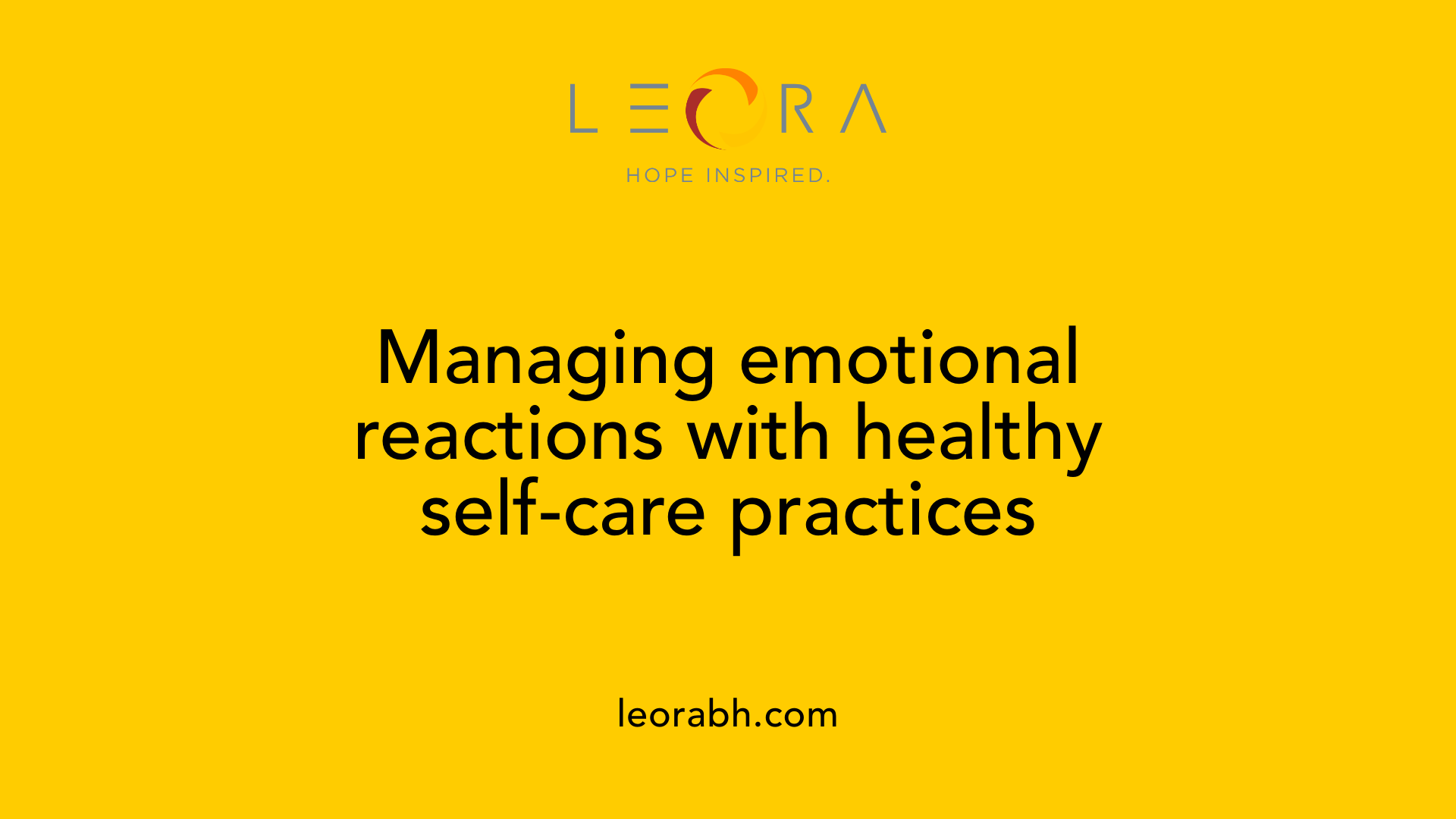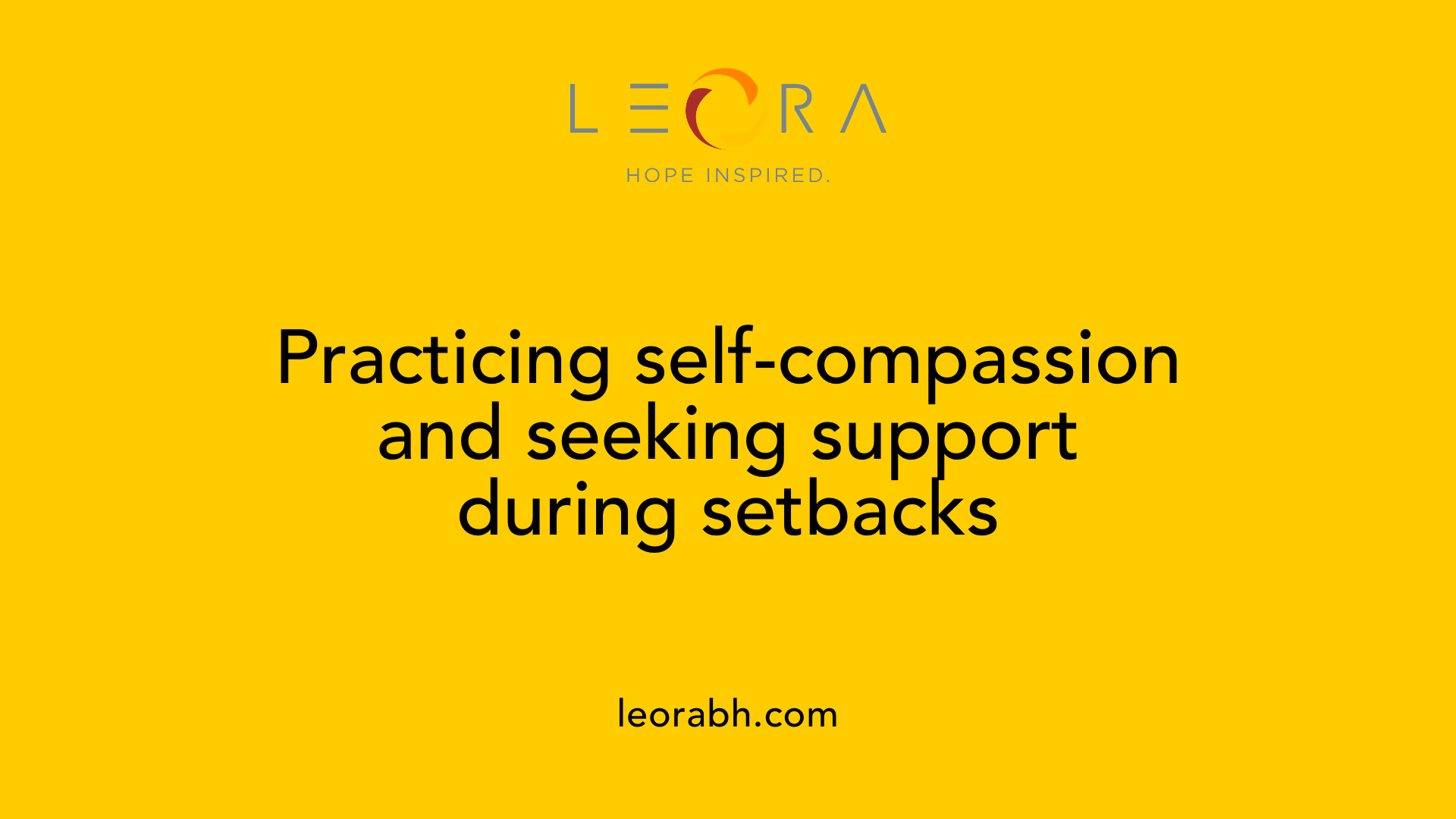How to handle setbacks during the recovery process
Navigating the Path of Recovery: Embracing Setbacks as Growth Opportunities
Understanding and Managing Recovery Setbacks
Recovery is a journey filled with ups and downs, and setbacks are a natural part of this process. Recognizing setbacks not as failures but as opportunities for learning can significantly enhance resilience and long-term success. This article explores practical strategies, emotional responses, and guidance on effectively handling setbacks during recovery, whether from mental health challenges, addiction, or physical injuries.
Normalizing Setbacks in the Recovery Process

What are setbacks and why are they considered normal during recovery?
Setbacks are temporary deviations from a recovery plan, such as a return to old habits, a brief lapse in judgment, or a slip in abstinence. They often occur during emotional vulnerability or when exposed to stress and triggers. Experiencing setbacks does not erase progress; instead, they are normal parts of the journey toward mental health or sobriety.
During recovery—whether from addiction, mental health issues, or behavioral change—setbacks can vary in intensity. For some, it might be skipping a support meeting or experiencing cravings. For others, it could involve falling into unhealthy routines or emotional struggles. Common triggers include stressful life events, environmental influences, a lack of adequate support, or overconfidence in one’s progress.
Understanding that setbacks are common and manageable is crucial. They serve as opportunities to identify personal triggers, sharpen coping strategies, and refine recovery plans. Viewing setbacks through a lens of learning helps reinforce long-term resilience and reduces feelings of shame or failure.
What types of setbacks occur during recovery?
Setbacks can manifest in various forms, including:
| Type of Setback | Description | Examples |
|---|---|---|
| Minor lapses | Brief deviations that do not completely derail recovery effort | Missing a support group meeting; a day of unhealthy eating |
| Emotional struggles | Feelings of sadness, anxiety, or hopelessness that impact motivation | Experiencing mood swings or feelings of worthlessness |
| Behavioral relapses | Resuming old habits or routines that hinder progress | Returning to substance use; engaging in harmful behaviors |
| Cognitive setbacks | Negative thoughts or beliefs that undermine confidence | Black-and-white thinking; self-criticism during tough times |
These setbacks often happen at moments of emotional vulnerability or environmental stressors, which make it vital to recognize and prepare for them.
What triggers can lead to setbacks?
Several factors can contribute to setbacks, including:
- Stressful life events: Loss, illness, or major transitions
- Environmental triggers: Places, people, or situations associated with past behaviors
- Emotional vulnerability: Feelings of loneliness, anxiety, or depression
- Lack of support: Social isolation or insufficient access to help
- Overconfidence: Underestimating challenges or thinking one has
Recognizing and Addressing Setbacks Early
How can setbacks be recognized and addressed during recovery?
Recognizing setbacks in recovery involves paying close attention to emotional, physical, and behavioral signals. Signs such as increased cravings, irritability, or mood swings, along with a loss of motivation or persistent negative thoughts, often indicate that a setback is occurring. It’s important to understand that setbacks can vary from minor slip-ups like missing a support group to more significant deviations such as engaging in harmful behaviors again.
To address these early signs effectively, adopting a compassionate and non-judgmental mindset is crucial. Self-awareness and emotional literacy enable individuals to identify triggers like stress, environment, or emotional vulnerability before they lead to full relapse. When setbacks are recognized, the next step involves reassessing the recovery plan, seeking support from trusted friends, family, or professionals, and applying coping strategies like mindfulness, relaxation exercises, or engaging in supportive activities.
Developing a relapse prevention approach that includes healthy routines, ongoing therapy, and peer support helps foster resilience. Viewing setbacks as opportunities for learning — rather than failures — encourages growth and long-term stability. Regular reflection on progress and honest acknowledgment of emotional or behavioral changes make early intervention possible, ultimately strengthening recovery efforts.
Strategies to Reframe and Reassess Recovery Goals

Why is flexibility and adaptability important in recovery plans?
Having a flexible approach to recovery is essential for long-term success. Life is unpredictable, and setbacks can happen due to unexpected stressors, triggers, or personal circumstances. When recovery plans are rigid, setbacks may feel like failures, increasing frustration or hopelessness.
In contrast, flexibility allows individuals to adapt their routines, goals, and coping strategies in response to new challenges. This mindset fosters resilience, enabling people to see setbacks as temporary hurdles rather than insurmountable obstacles. Adjusting expectations and methods helps maintain motivation, even when progress slows or momentarily reverses.
Revising recovery strategies based on current circumstances encourages patience and perseverance, vital components of sustained recovery. By practicing flexibility, individuals can prevent discouragement and sustain effort, turning setbacks into opportunities for learning and growth.
How to reassess goals after setbacks?
Reevaluating goals is a crucial part of the recovery process, especially after experiencing setbacks. It involves pausing to reflect on what worked, what didn’t, and what can be improved.
Start by recognizing that setbacks are normal and valuable learning moments. Break larger goals into smaller, manageable steps, making it easier to track progress and avoid feeling overwhelmed.
Celebrate small achievements along the way. Each success, no matter how minor, builds confidence and reinforces momentum.
Revisit your
Emotional Responses and Self-Care During Recovery

What are common emotional responses to recovery setbacks?
Experiencing setbacks during recovery often triggers a wide range of emotional reactions. Common feelings include sadness, disappointment, frustration, anger, fear, and withdrawal from social interactions. These responses are natural, especially when individuals face the pain and difficulty associated with setbacks.
Many people also feel a sense of failure or renewed distress, which can lower motivation and impact emotional well-being. It is important to recognize that these feelings are part of the healing journey and should not be viewed as personal shortcomings but as normal reactions to challenges.
Managing these emotions effectively requires adopting healthy coping strategies. Talking to trusted friends or family members can provide comfort and perspective. Utilizing recovery tools such as mental health apps—like the 'AfterTrauma' app—can assist in tracking feelings and practicing relaxation exercises.
Engaging in relaxation techniques, mindfulness, or grounding exercises helps reduce stress and emotional overwhelm. Practices such as deep breathing, meditation, or physical activities like walking or yoga can improve mood and resilience. Creating a journal to express feelings or writing letters to oneself can also be therapeutic.
If emotional responses persist or become overwhelming, seeking professional support is crucial. Therapists and mental health professionals can offer personalized strategies, help process trauma, and address conditions like depression or PTSD.
Building emotional resilience involves understanding that setbacks are temporary and manageable. Reinforcing positive self-talk, celebrating small wins, and revisiting the reasons for recovery can boost confidence and perseverance.
Ultimately, embracing self-compassion and patience during tough times encourages a compassionate attitude toward oneself. Recognizing the normalcy of emotional responses and actively working through them helps pave the way for continued progress.
Supporting Yourself and Others During Difficult Times

How should one handle emotional setbacks during recovery?
Managing emotional setbacks is an integral part of the recovery journey. It’s important to remember that such experiences are completely normal and do not signify failure. Emotions like frustration, sadness, or hopelessness often surface during tough times, but reacting with self-compassion can make a significant difference.
Practicing patience and avoiding harsh self-criticism help foster resilience. Instead of blaming oneself for setbacks, gently acknowledge the challenge as a step towards growth. Reaching out to support networks—be it trusted friends, family members, support groups, or mental health professionals—provides much-needed emotional comfort and guidance.
Employing coping strategies, such as mindfulness exercises, journaling, and grounding techniques, can help manage overwhelming feelings. For example, deep breathing or engaging with one's senses can alleviate anxiety and bring focus back to the present.
Additionally, reflecting on the progress already made is motivating. Revisiting past successes and reassessing recovery goals can boost confidence and help set realistic expectations. Maintaining hope is essential; understanding that setbacks are temporary and part of the process encourages persistence.
In summary, handling emotional setbacks involves a combination of self-kindness, support-seeking, and active coping, creating a resilient mindset that can navigate the ups and downs of recovery effectively.
Moving Forward with Confidence
While setbacks during recovery are inevitable, they are not an end but an integral part of the growth process. By understanding their nature, recognizing early signs, and employing effective coping strategies, individuals can transform setbacks into opportunities for resilience and deeper self-awareness. Support systems, professional guidance, and a flexible, compassionate approach foster a constructive environment for recovery. Embracing imperfection, celebrating small victories, and maintaining hope build a robust foundation for long-term success. Remember, recovery is a journey of continuous learning—each setback is a stepping stone toward a healthier, more fulfilling life.
References
- Setbacks and Recovery: That's OK - American Heart Association
- Appendix XVI
- How to Handle Setbacks Without Losing Hope in Addiction Recovery
- Why Setbacks in Recovery Are a Normal Part of the Process
- How to Manage Setbacks in Recovery - Millennium Counseling Center
- 5 Ways to Deal With Setbacks in Recovery
- Bouncing Back: How to Redesign Your Life After a Major Setback
- Relapse in Addiction Recovery: Dealing With Setbacks
- Redefining Failure: How to Overcome Setbacks
- Dealing With Setbacks In Recovery
Find Your Inner Light
Related Articles
Schedule an Assessment
Leora Behavioral Health provides comprehensive treatment services, including ambulatory detox, mental health IOP, and SUD IOP, to support your journey toward lasting recovery.
Our caring team will guide you through the admissions process and create a personalized treatment plan tailored to your unique needs. We welcome walk-ins. If you or a loved one is struggling, reach out today. We’re here to help.


.svg)




.svg)
.svg)
.svg)
.svg)
